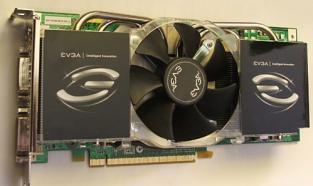OOPS! You forgot to upload swfobject.js ! You must upload this file for your form to work.
The Chinese promise to begin the release of the national 64-layer memory 3D NAND in 2019
![]()
|
xtreview is your : Video card - cpu - memory - Hard drive - power supply unit source |
|
|||
|
|
||||
 Recommended : Free unlimited image hosting with image editor
Recommended : Free unlimited image hosting with image editor
|
POSTER: computer news || THE CHINESE PROMISE TO BEGIN THE RELEASE OF THE NATIONAL 64-LAYER MEMORY 3D NAND IN 2019 |
DATE:2017-05-10 |
|
|
Since August 2016 in China, the joint venture Yangtze River Storage Technology (YRST), which has set itself an ambitious task to create an advanced production of NAND and DRAM memory, began to operate in China. Controlling stake in the joint venture belongs to the holding Tsinghua Unigroup. Another owner of the JV was Wuhan Xinxin Semiconductor Manufacturing (XMC). The joint venture manages the XMC plant and is building two new factories focused on processing 300-mm plates. The first line of lines at one of the new plants of the joint venture will begin mass production in 2018. In the development of the technology of production of multi-layer NAND (3D NAND) company XMC helps the company Spansion. This week, the chairman of the company YRST, Charles Kau (Charles Kau), said that by the end of the year the company will begin to produce samples of 32-layer 3D NAND. Also by the end of the year, the technology of 64-layer flash memory will be developed, which will allow the Chinese to reduce the gap between the current leaders of the industry for up to two years. The start of production of 64-layer 3D NAND promises to begin in 2019. Samsung and Toshiba, we recall, have already started mass production of 64-layer 3D NAND. All of the above said the chairman of the company YRST voiced during his visit to Taiwan. . For a long time and even now Taiwan has been oriented towards cooperation with Western and South Korean companies that have become technology donors and received in return ready products (DRAM and NAND chips). Now China wants to become independent in this matter, and the rich experience of Taiwanese companies would be useful . In particular, Charles Kau called on Taiwanese colleagues to create joint patent packages, which would help partners to confront world leaders in the memory market. World leaders and personally the company Micron against such cooperation. Previously, Micron blocked the work of DRAM technology developers in one of UMC's R & D centers in Taiwan. Also, Micron accuses about a hundred of its former employees in Taiwan in the transfer of memory manufacturing technology to the Chinese. All of them are trying to prohibit switching to work in YRST and similarly appointed other newly created Chinese companies. | ||
|
|
||
|
xtreview is your : Video card - cpu - memory - Hard drive - power supply unit source |
|
|
|
|
||
|
Xtreview Support  N-Post:xxxx Xtreview Support        |
THE CHINESE PROMISE TO BEGIN THE RELEASE OF THE NATIONAL 64-LAYER MEMORY 3D NAND IN 2019 |
| Please Feel Free to write any Comment; Thanks  |
The new version of GPU-Z finally kills the belief in the miracle of Vega transformation (2017-09-08)
The motherboard manufacturer confirms the characteristics of the processors Coffee Lake (2017-09-08)
The Japanese representation of AMD offered monetary compensation to the first buyers of Ryzen Threadripper (2017-09-08)
This year will not be released more than 45 million motherboards (2017-09-08)
TSMC denies the presentation of charges from the antimonopoly authorities (2017-09-08)
Radeon RX Vega 64 at frequencies 1802-1000 MHz updated the record GPUPI 1B (2017-09-08)
Radeon RX Vega 57, 58 and 59: the wonders of transformation (2017-09-07)
The older Skylake processors with a free multiplier are removed from production (2017-09-07)
The fate of Toshiba Memory can be solved to the next environment (2017-09-07)
The European Court sent Intel case on abuses for reconsideration (2017-09-07)
Huawei overtook Apple and became the second largest smartphone manufacturer in the world (2017-09-07)
Twelve-core Core i9-7920X lost the lid in front of the photographic lens (2017-09-06)
In exchange for increasing the stake in the joint venture with Toshiba, Western Digital Corporation is ready to refuse to participate in the auction (2017-09-06)
China banned the creation of new ICO crypto-currency and ordered to return the money for the created one (2017-09-06)
AMD gave details about the history of the Ryzen Threadripper (2017-09-06)
The six-core processor Intel Coffee Lake lit up at a Chinese auction (2017-09-06)
The characteristics of the mobile chip MediaTek Helio P40 are known (2017-09-06)
By the end of the year Toshiba hopes to release a 14TB hard drive (2017-09-06)
Compact systems Intel NUC based on Coffee Lake will be released in the second quarter of 2018 (2017-09-05)
Asustek increases its share in the segment of expensive motherboards (2017-09-05)
![]()
To figure out your best laptops .Welcome to XTreview.com. Here u can find a complete computer hardware guide and laptop rating .More than 500 reviews of modern PC to understand the basic architecture


7600gt review
7600gt is the middle card range.
We already benchmarked this video card and found that ...

 geforce 8800gtx and 8800gts
geforce 8800gtx and 8800gts  Xtreview software download Section
Xtreview software download Section  AMD TURION 64 X2 REVIEW
AMD TURION 64 X2 REVIEW  INTEL PENTIUM D 920 , INTEL PENTIUM D 930
INTEL PENTIUM D 920 , INTEL PENTIUM D 930  6800XT REVIEW
6800XT REVIEW  computer hardware REVIEW
computer hardware REVIEW  INTEL CONROE CORE DUO 2 REVIEW VS AMD AM2
INTEL CONROE CORE DUO 2 REVIEW VS AMD AM2  INTEL PENTIUM D 805 INTEL D805
INTEL PENTIUM D 805 INTEL D805  Free desktop wallpaper
Free desktop wallpaper  online fighting game
online fighting game  Xtreview price comparison center
Xtreview price comparison center Lastest 15 Reviews


Rss Feeds
Last News
- The new version of GPU-Z finally kills the belief in the miracle of Vega transformation
- The motherboard manufacturer confirms the characteristics of the processors Coffee Lake
- We are looking for copper coolers on NVIDIA Volta computing accelerators
- Unofficially about Intels plans to release 300-series chipset
- The Japanese representation of AMD offered monetary compensation to the first buyers of Ryzen Threadripper
- This year will not be released more than 45 million motherboards
- TSMC denies the presentation of charges from the antimonopoly authorities
- Radeon RX Vega 64 at frequencies 1802-1000 MHz updated the record GPUPI 1B
- AMD itself would like to believe that mobile processors Ryzen have already been released
- AMD Vega 20 will find application in accelerating computations
- Pre-orders for new iPhone start next week
- Radeon RX Vega 57, 58 and 59: the wonders of transformation
- ASML starts commercial delivery of EUV-scanners
- The older Skylake processors with a free multiplier are removed from production
- Meizu will release Android-smartphone based on Helio P40
- AMD Bristol Ridge processors are also available in American retail
- The fate of Toshiba Memory can be solved to the next environment
- duo GeForce GTX 1080 Ti in GPUPI 1B at frequencies of 2480-10320 MHz
- New Kentsfield overclocking record up to 5204 MHz
- Lenovo released Android-smartphone K8

HALO 3 HALO 3 - Final Fight!

PREY Prey is something you don t often see anymore: a totally unigue shooter experience.

computer news computer parts review Old Forum Downloads New Forum Login Join Articles terms Hardware blog Sitemap Get Freebies


